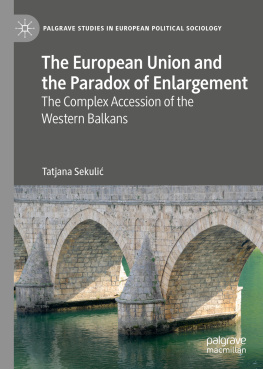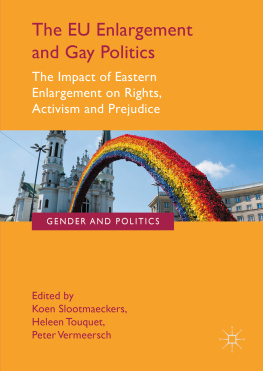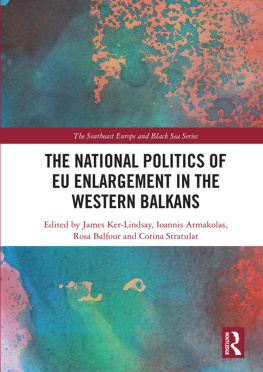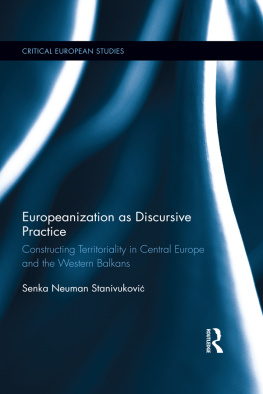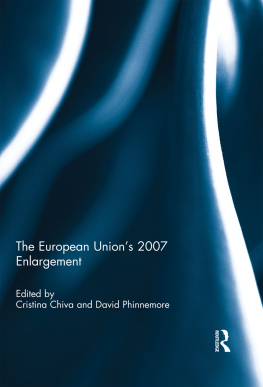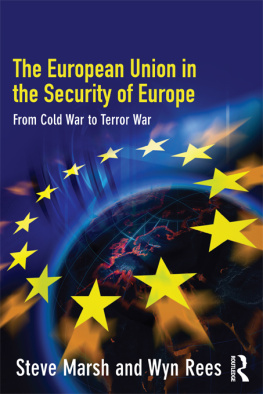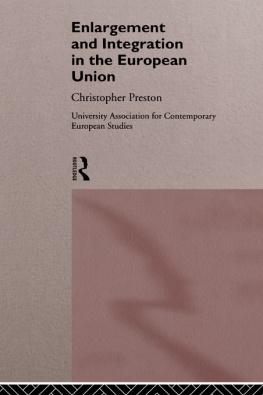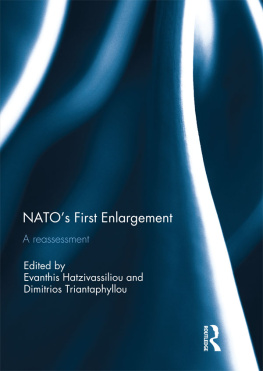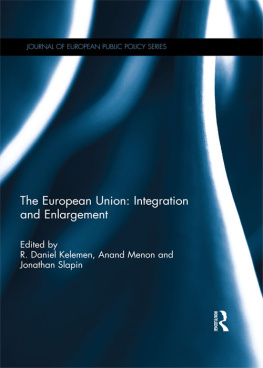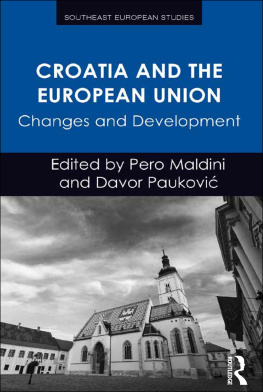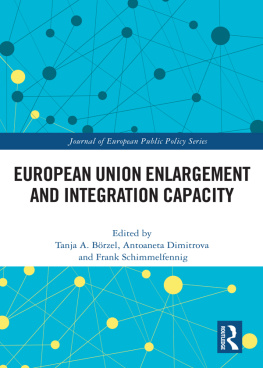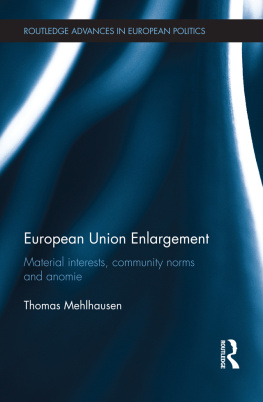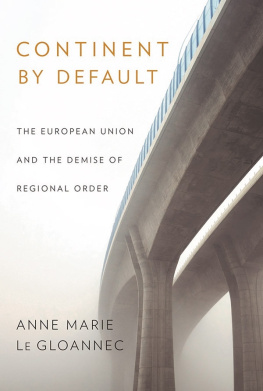Tatjana Sekulić - The European Union and the Paradox of Enlargement: The Complex Accession of the Western Balkans
Here you can read online Tatjana Sekulić - The European Union and the Paradox of Enlargement: The Complex Accession of the Western Balkans full text of the book (entire story) in english for free. Download pdf and epub, get meaning, cover and reviews about this ebook. year: 2020, publisher: Palgrave Macmillan, genre: Politics. Description of the work, (preface) as well as reviews are available. Best literature library LitArk.com created for fans of good reading and offers a wide selection of genres:
Romance novel
Science fiction
Adventure
Detective
Science
History
Home and family
Prose
Art
Politics
Computer
Non-fiction
Religion
Business
Children
Humor
Choose a favorite category and find really read worthwhile books. Enjoy immersion in the world of imagination, feel the emotions of the characters or learn something new for yourself, make an fascinating discovery.
- Book:The European Union and the Paradox of Enlargement: The Complex Accession of the Western Balkans
- Author:
- Publisher:Palgrave Macmillan
- Genre:
- Year:2020
- Rating:5 / 5
- Favourites:Add to favourites
- Your mark:
- 100
- 1
- 2
- 3
- 4
- 5
The European Union and the Paradox of Enlargement: The Complex Accession of the Western Balkans: summary, description and annotation
We offer to read an annotation, description, summary or preface (depends on what the author of the book "The European Union and the Paradox of Enlargement: The Complex Accession of the Western Balkans" wrote himself). If you haven't found the necessary information about the book — write in the comments, we will try to find it.
Tatjana Sekulić: author's other books
Who wrote The European Union and the Paradox of Enlargement: The Complex Accession of the Western Balkans? Find out the surname, the name of the author of the book and a list of all author's works by series.
The European Union and the Paradox of Enlargement: The Complex Accession of the Western Balkans — read online for free the complete book (whole text) full work
Below is the text of the book, divided by pages. System saving the place of the last page read, allows you to conveniently read the book "The European Union and the Paradox of Enlargement: The Complex Accession of the Western Balkans" online for free, without having to search again every time where you left off. Put a bookmark, and you can go to the page where you finished reading at any time.
Font size:
Interval:
Bookmark:
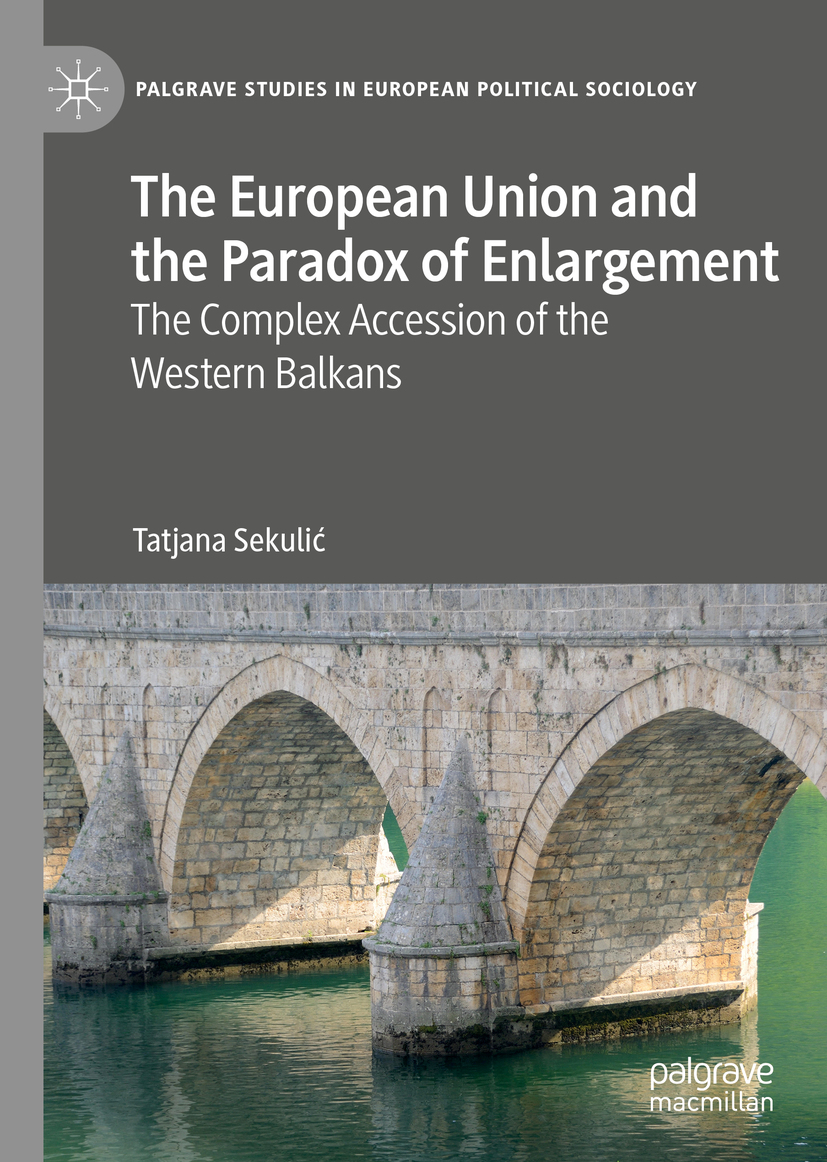
Palgrave Studies in European Political Sociology addresses contemporary themes in the field of Political Sociology. Over recent years, attention has turned increasingly to processes of Europeanization and globalization and the social and political spaces that are opened by them. These processes comprise both institutional-constitutional change and new dynamics of social transnationalism. Europeanization and globalization are also about changing power relations as they affect people's lives, social networks and forms of mobility.
More information about this series at http://www.palgrave.com/gp/series/14630 The Palgrave Studies in European Political Sociology series addresses linkages between regulation, institution building and the full range of societal repercussions at local, regional, national, European and global level, and will sharpen understanding of changing patterns of attitudes and behaviours of individuals and groups, the political use of new rights and opportunities by citizens, new conflict lines and coalitions, societal interactions and networking, and shifting loyalties and solidarity within and across the European space.
We welcome proposals from across the spectrum of Political Sociology and Political Science, on dimensions of citizenship; political attitudes and values; political communication and public spheres; states, communities, governance structure and political institutions; forms of political participation; populism and the radical right; and democracy and democratization.

Cover illustration: Bokica / Alamy Stock Photo
This Palgrave Macmillan imprint is published by the registered company Springer Nature Switzerland AG.
The registered company address is: Gewerbestrasse 11, 6330 Cham, Switzerland
In the first days of January 2019, we leave Sarajevo, gliding on the ice and the snow that had fallen in the previous days. Temperatures are extremely low, minus ten degrees. Before that, there was the struggle of conducting the last round of interviews and collecting research documents during the holiday breaks. The thirty kilometres of highway towards Zenica illuminate the horizon of progress, foreshadowing the idea that Bosnia and Herzegovina could become a state where mobility is possible in safety and speed. The highway ends in front of the blast furnaces of the Zenica steel mill, amid the reddish air that covers the landscape of an otherwise uniquely beautiful valley. From Zenica, the road narrows into only two lanes, which makes overtaking a car or truck a life-threatening manoeuvre. The road leads to Nemila, a small town along the river Bosna the name of which literally means undear, where for some years now there have been stalls and delays due to damage on the road caused by floods, landslides or who knows what else. The crossing of the first administrative but also political border in Bosnia and Herzegovina is marked by only one sign welcoming passengers to the Republic of Srpska in the Cyrillic alphabet (the expression is identical in all three national languagesSerbian, Croatian and Bosnian) and in English. For part of our journey we are accompanied by sights of mined houses in roadside villages, only a small number of which were restored within the twenty-four years of the Dayton Agreement marking the end of the open war conflicts. After Doboj now, a new section of the highway much more comfortably leads to the border with Croatia and, since July 2013, with the European Union. Yet we continue in the usual direction towards the border between the two shipsBosanski Brod and Slavonski Brod (brodmeans ship), across Sava River. Its waters originate in Slovenia , flow through Croatia and Bosnia and finally through Serbia to meet the Danube in Belgrade. Along the way, we stop for an Illy coffee at theNada(hope) gas station, where we are already friends with the staff. Entry into the European Union this time is not so difficulttwenty minutes waiting in Nemila and another forty at the border with Croatia . It then takes us four full hours to cross the seven kilometres that separate us from the Schengen border between Croatia and Slovenia . Hundreds of motorists are honking simultaneously as they approach the toll booth four hundred metres ahead of the border , the primary purpose of which is to control the influx of cars avoiding thus heavy congestion in front of the fortress gate. Croatia is once again the bulwark of civilization, while peopleprobably mostly from the diasporaflock back to their Western European homes after the holidays. Slovenia also has double border checks, with restrictive policies of the European institutions related to the migrant crisis, especially since the opening of the Balkan Route in 2015, pressuring both countries. At last, Europe: at the border with Italy, they just check the vignette that Slovenia required us to pay in order to drive on the highway.
This brief ethnographic reportage illustrates how the contingent redefinition of boundaries of different character directly and indirectly determines the everyday life of citizens , whether they are nationals of EU member states or residents of the accession countries. Free movement , as one of the founding principles upon which the community of European states is founded, is called into question under the pressure of European and national securitization policies, for which the pretext of a migrant crisis and its direct association with Islamic-inspired terrorism provides a very convenient framework. In addition to this, the old bilateral disputes between countriesin this particular case between Slovenia and Croatia are being reactivated in informal and non-transparent ways.
Font size:
Interval:
Bookmark:
Similar books «The European Union and the Paradox of Enlargement: The Complex Accession of the Western Balkans»
Look at similar books to The European Union and the Paradox of Enlargement: The Complex Accession of the Western Balkans. We have selected literature similar in name and meaning in the hope of providing readers with more options to find new, interesting, not yet read works.
Discussion, reviews of the book The European Union and the Paradox of Enlargement: The Complex Accession of the Western Balkans and just readers' own opinions. Leave your comments, write what you think about the work, its meaning or the main characters. Specify what exactly you liked and what you didn't like, and why you think so.

